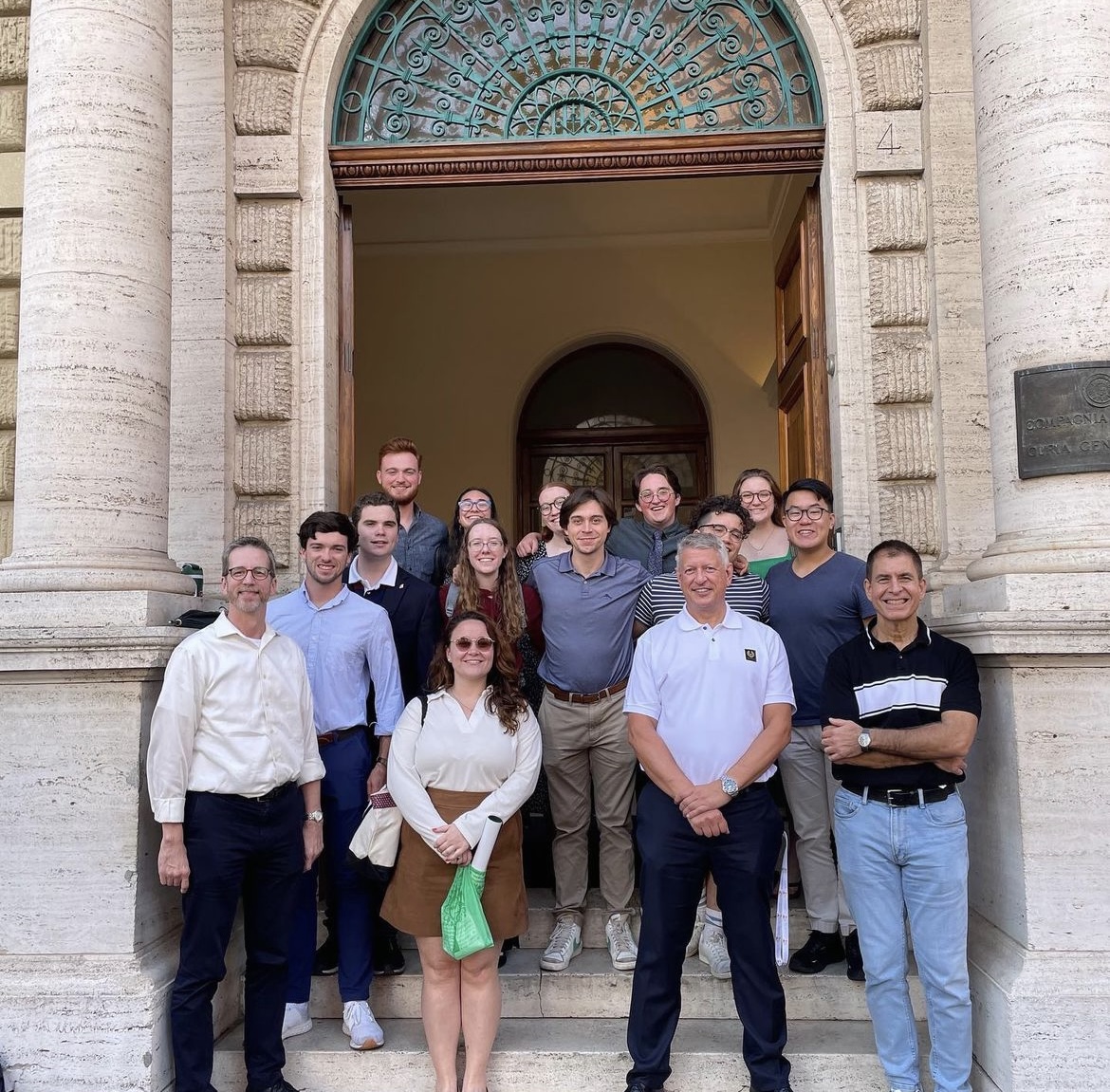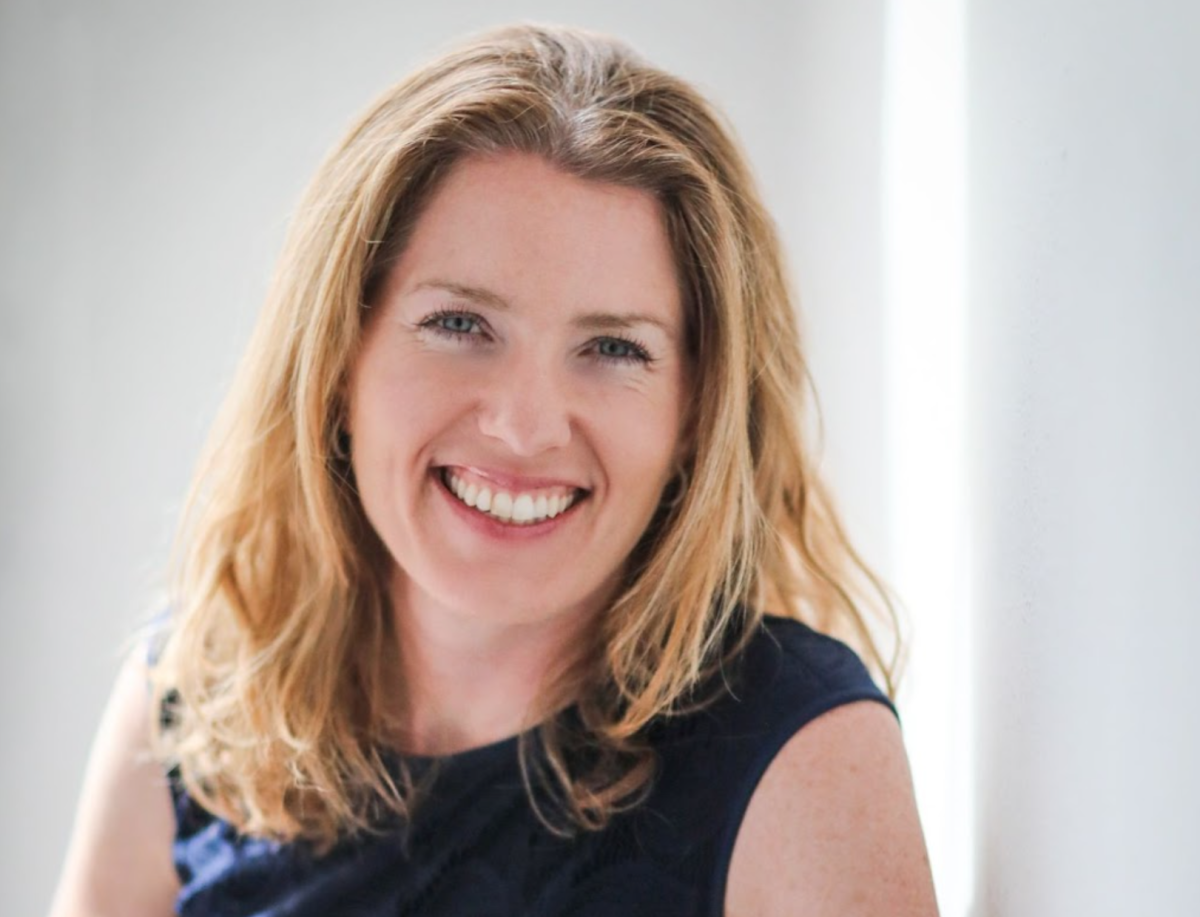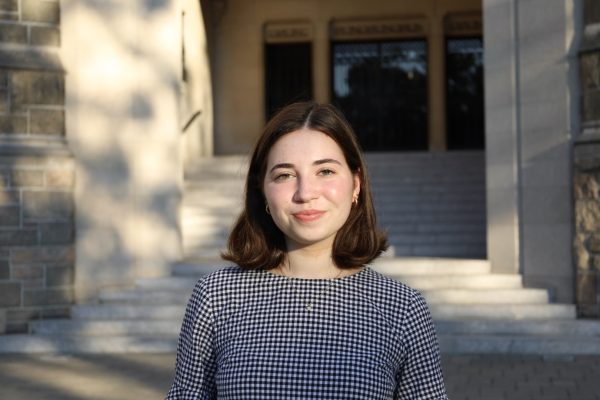A group of 11 Fordham students, one graduate student and 10 undergraduates, traveled to Rome to observe Pope Francis’ landmark Synod on Synodality on Oct. 13, 2023.
“The Synod on Synodality is an event that is a multi-year event from 2021-2024 which includes a month-long meeting this past October of delegates from around the world, so they’re physically together in Rome for this month-long period. We traveled to Rome while all the delegates were there discussing relevant issues in the Church that were brought up in years prior,” explained Eli Taylor, a theology master’s student.
Throughout the students’ week-long stay, the group spent time speaking to officials and participating in workshops with representative groups in order to gain understanding on how conversations functioned in Vatican meetings.
The Vatican discussed various topics relevant to the Church today, such as women’s inclusion and leadership in the Church, the dignity of life, LGBTQ+ issues and environmental concerns.
“The issues that were being discussed in the meeting hall came together after a multi-year long discussion session that was going on in the wider church, starting at parish-levels. It was a time period for people to air their grievances or to say what they like about the church, how they feel listened to by the church or how they don’t feel heard, and that was consolidated into one document that was brought to Rome and given to the delegates to discuss,” said Taylor.
Before traveling to Rome, the group of students read the document that was discussed in the meetings, “Instrumentum Laboris,” as well as various news articles and papers about the Synod. For additional preparation, each week a student presented an article and discussed the ramifications for the Synod and the Church. Fordham is the only delegation of college students in the world that attended the Synod.
“Fordham is an institution that’s been participating in the Synod since 2021 through a number of lectures, guest speakers, etc., but this is really Fordham’s next level of engagement with the Synod,” said Vanessa Rotondo, Fordham adjunct professor and deputy chief of staff to the university’s president, Tania Tetlow.
Although the group was well-prepared before embarking to Italy’s capital, students didn’t have a clear picture of what their day-to-day experience would look like while in Rome.
“We were kind of kept a little in the dark about what our experience was going to be like,” said Will Gualtiere, FCLC ’25. “It was sort of done with the idea behind it to stay present in the moment and not have some sort of expectation or precipitation about the trip so when we go we could have an authentic experience.”
“I think my expectation going there was that we were going to be serving as some kind of representative — that we were representing American college students. I think my expectation coming back was that we’re not representatives of American college students, but rather representatives of the Synod towards American college students,” said Seamus Dougherty, FCRH ’26.
Although the group has returned to New York City, they continue to actively share their experience of the Synod with the Fordham community. The students post articles on Fordham’s Center on Religion and Culture’s “Sapientia” blog as well as document their experience on the Instagram account @synodalfordham.
For Dougherty, bringing the Synod’s mission to the Bronx means actively depolarizing people he encounters and being a better listener.
“Especially when it feels like the world, campus and the country are being sort of pulled apart from each other, the project of considering how you can take steps to actively depolarize the people you encounter, depolarize your own viewpoints and be a better listener have been, I think, an important thing that we’re trying to take away and to bring into our conversations with each other, the Church and our peers,” said Dougherty.
Meanwhile, Abigail Adams, FCRH ’26, said she sees larger themes of Synodality present in her liberal arts classes.
“I’ve been able to see through our experience in Rome, what we’ve learned and the idea of Synodality overall implemented in my other classes. While we’re not directly talking about the Synod or Synodality, I see this theme of overcoming polarizations in my English, philosophy and anthropology classes,” said Adams.
Through conversations with their peers and delegates in Rome, the group of students recognized the Church’s openness to change and their willingness to listen to all members of the Catholic Church.
The students stressed that the Synod is a continuous, ever-changing process rather than an outcome-based affair.
“The Church is changing. I just want to tell people who feel hurt by the Church or by their experiences with religion that things aren’t going to be the way they’ve always been — this is a real turning point,” said AnnaMarie Pacione, FCRH ’26.
There is a discussion on Dec. 3 about the Synod.









































































































































































































